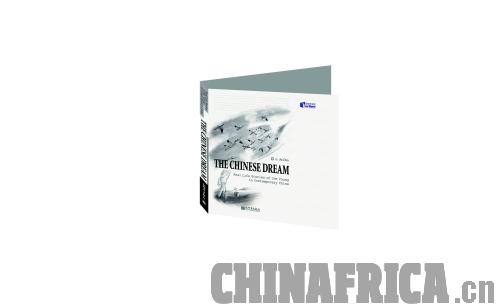| 
An Dun is a journalist with great influence in China, whose work since the mid-1990s has focused on the inner lives of contemporary Chinese. In 1997, she began penning a column for Beijing Youth Daily to record the stories she came across. The column attracted a lot of attention – and readers – because its content was more "private" than what was normally acceptable for public consumption at the time. Due to her niche, An was referred to in Western media as the "first female journalist covering emotional privacy in China."
In 2007, An started working on The Chinese Dream series (published by New World Press). While researching, her interviews spanned an ever-growing number of social groups and her writing became increasingly detailed. She had been confident about her comprehension of Chinese society prior to the series, but this experience renewed her understanding and brought readers into a more complex world.
The Chinese dream is complicated. According to Confucius, in ancient times it was grounded in cultivating the moral self, regulating the family and keeping peace. But these traditional ideas are far from how modern-day Chinese live. Obsessed with mantras like "get rich first," the dream has been gradually replaced with desire. Do Chinese people still have a dream? If so, what is it? These are questions many ask themselves. An's efforts may provide an answer.
Three books have been published in the series so far. The stories within them are primarily uninterrupted interview transcripts. Most of the interviewees are part of China's "silent majority," who are typically excluded from mainstream media coverage. They are earnest and unaffected, without sentimentality and self-pity. In many interviews, An sheds tears with her subjects.
It's an eye-opening reading experience. One of the books focuses on rural migrant workers seeking opportunities in China's modern cities. Their struggles redefine the Chinese dream; their dreams are grounded in common sense. In one chapter, a headmaster of a school for migrant children details his hopes of repaying the kindness of his foster parents through his job. In another, a writer, also a migrant worker, dreams of becoming a champion for those suffering around him.
Other dreams in the series vary: A girl eager to hunt for a rich husband using her beauty and youth; a mother hoping her daughter may attend the university that denied her acceptance decades ago; a man trying to feed himself and find a good wife. Can these be called dreams? They are neither romantic nor glossy. As the book's spine reads, these dreams are "more realistic than reality." "Anything but fortune is nonsense," explains one of An's interviewees. "Beijing's sky is not clear because money blocks it off."
For all of the strife recorded in An's books, glimpses of good human nature do shine through. The Chinese striving for better lives are not necessarily doomed to lose themselves in the chase for wealth. They are still capable of feeling joy and happiness. Moreover, to conclude that An's interviewees (and Chinese society by extension) have lost their "dream" is careless. Wealth is a realistic dream because it is a prerequisite for freedom and dignity. "The stories are earnest and moving," says Zhao Qizheng, Dean of the School of Journalism and Communication at Renmin University of China. "Her subjects' dreams push forward both themselves and our society."
Money worship is a product of long term poverty, but even "golden dreams" do not consist of money alone. As An points out in her postscript, "Even though some of them are living rich and comfortable lives, their stories are all about the same feeling: the memory of hardship, poverty, frustration and self-improvement, through which fate is finally changed, will never be erased but will remain vital in their hearts. Once touched, the memories still ache.
(The author is a veteran editor) |